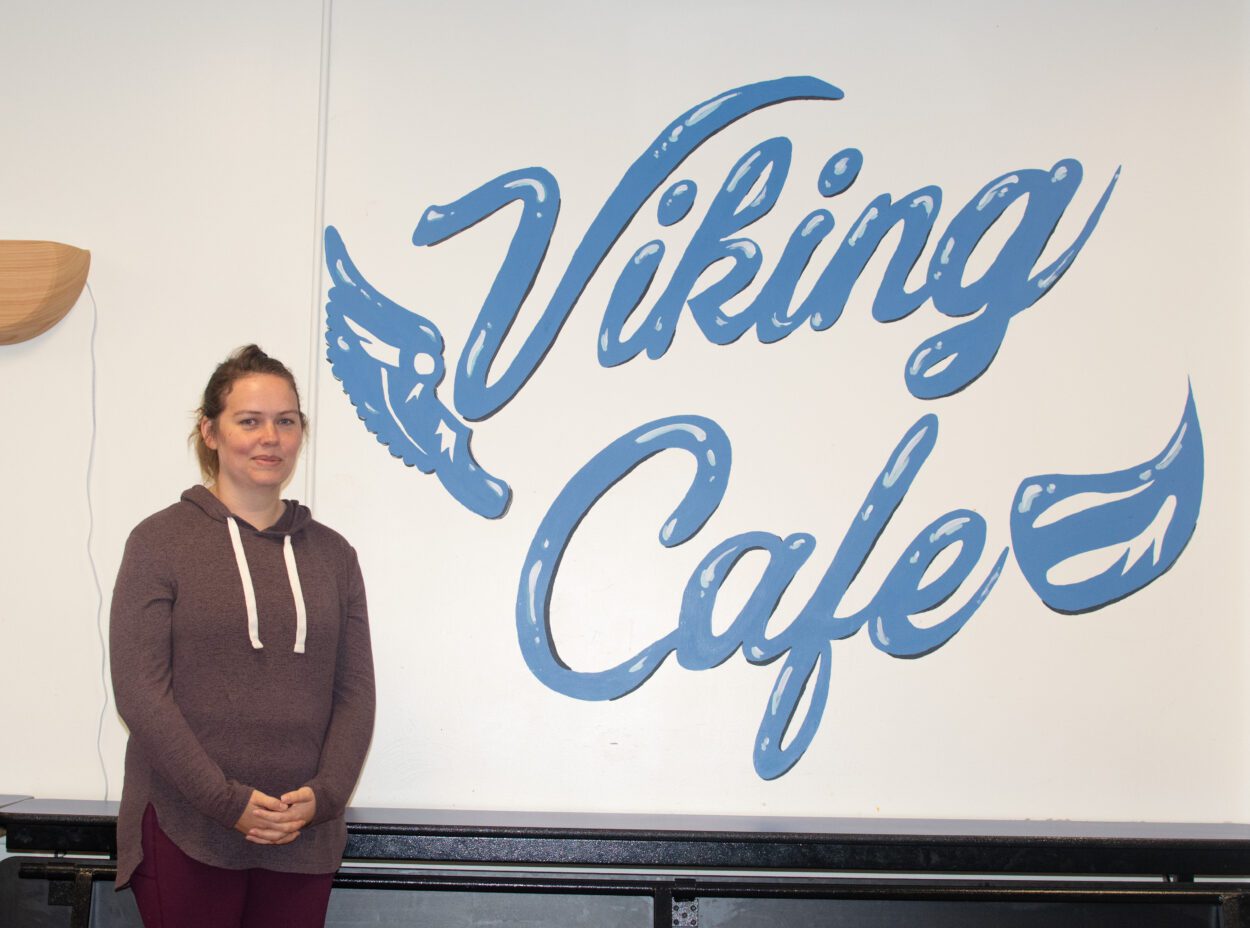
(Photo by Shelby Herbert/KFSK)
Two school districts in rural Alaska received large federal grants to boost student nutrition. This summer, the U.S. Department of Agriculture awarded Petersburg and Dillingham schools over $100,000 each. In Petersburg, this means that students will see less sugar and salt, and more locally-sourced foods in their lunches.
Petersburg’s school district is cooking up a few new projects with the funds — which could include putting salmon eggs on the menu.
A gulf of difference lies between Petersburg and Dillingham — literally, the Gulf of Alaska, and about 1,000 miles. But both communities are remote; off the road system. USDA Regional Administrator Jesus Mendoza Jr. said that’s exactly why the Food and Nutrition Service program picked them out.
“The couple of weeks I was in Alaska, and I had the pleasure to be able to experience the challenges that Alaska has in the transportation of food,” said Mendoza Jr. “…Going to the remote areas, and seeing how the schools have to be on the barge system, [and how] the transportation adds to the already high cost of food that exists in Alaska. We went to some of the stores, and I was just amazed to see [the price of everything]. Like, $9 for a loaf of bread!”
He said that expensive transportation also limits the quality and variety of foods that the rural schools can use. And by the time the food gets to port, it’s already nearing its expiration date.
“[The schools] have very limited time where they can be used,” said Mendoza Jr. “They may have to use them right away, or they may be spoiled and unable to use them.
Mendoza Jr. hopes sourcing locally might help offset that cost, and get better foods on the table. Dillingham schools are using their grant to build a hydroponic tank to grow their greens right on location.
In Petersburg, Carlee Johnson McIntosh oversees the school district’s food program. She said they’ll invest the grant in a few projects that will bring more local foods into the lunchroom— starting right outside, in the school garden, with fruits and veggies the kids grew themselves.
“So if a kid grows it and they know that they grew it — they planted it, they’re there for the whole life, they’re going to be more likely to to consume it,” said Johnson McIntosh. “That’s the goal with school gardens — to get them into that whole process.”
However, the potential for sourcing local foods extends far beyond the school’s garden beds. Mendoza Jr. said he was excited to learn about the possibility of serving up Alaska’s traditional foods.
“…Like reindeer or caribou, or something like that that they have,” said Mendoza Jr. “Different areas of Alaska have different local foods. The training through this foundation can help them be able to prepare and make the most out of those recipes.”
Petersburg students certainly won’t find caribou on the menu. But they might see salmon eggs soon. Johnson McIntosh is working with Petersburg Indian Association, the local tribe, to get traditional foods in the cafeteria.
“They do salmon eggs, seaweed, they have the geoduck…” said Johnson McIntosh. “We’ve got people that have [just] moved to town, we have Coast Guard families who probably haven’t had some of that. It’s cool to see different varieties and bringing it into the school and giving kids a taste.”
But there’s a catch — in order to meet the requirements for the grant, Petersburg School District has to cut back on sugar and sodium. This year, Johnson McIntosh is making sure there’s less than 1,000 milligrams of sodium in each meal.
“That includes anything from your milk, your fruit, your vegetable, your main entree — all your condiments that you put on that,” said Johnson McIntosh . “If anybody’s ever had to do low sodium for heart, [you know] the first first bit of it is a little rough.”
Next year is a sugar reduction year, and Johnson McIntosh expects that’ll be an even harder adjustment. But she said making little switches here and there will help Petersburg schools reach that goal.
“They’re not gonna have some of the things that they really like — like the Yami Yogurt —” said Johnson McIntosh. “— it’s like a favorite of the kids. But Chobani is actually already approved. They might be sad at first, but pretty soon it’s just gonna be a habit.”
If Petersburg students can survive without those extra pinches of salt — and their favorite yogurt — not only will they be healthier, but the schools will get funding for the next two years.











